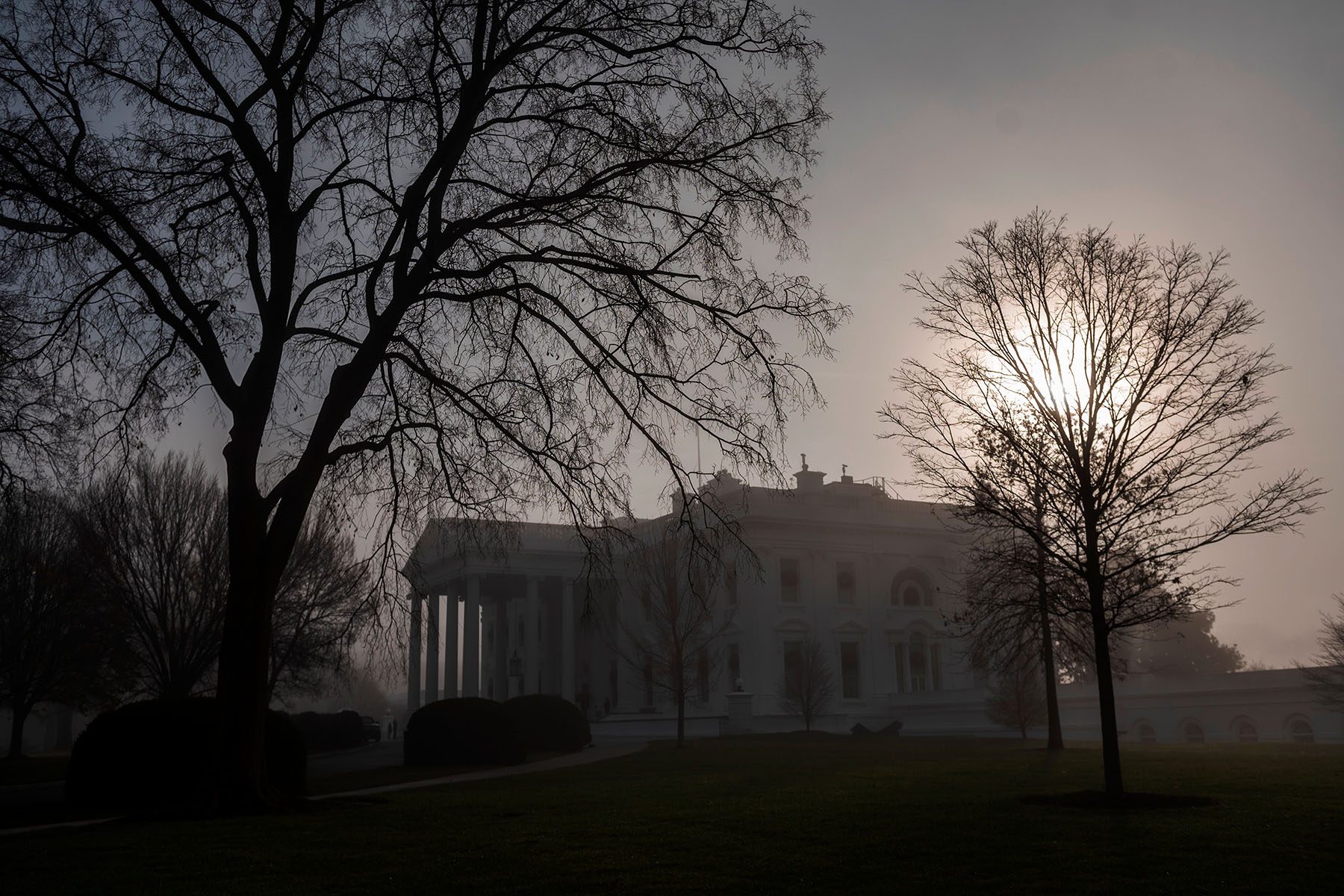The White House’s Gender Policy Council has published the nation’s first strategy to achieve gender equity, a multi-part approach that centers economic security, abortion access and voting rights with a focus on ensuring that people from marginalized groups are prioritized.
The strategy, published Friday, is the culmination of work from the council, which was established via executive order shortly after President Joe Biden took office. It was designed to help guide how domestic and foreign policy that directly affects women, girls and LGBTQ+ people is shaped across the administration. At the center of the plan is a focus on intersectionality and addressing specific systemic barriers for people of color and gender diverse people.
The Gender Policy Council plans to prepare an annual report to the president that will track the administration’s progress in meeting the goals outlined in the strategy. The Office of Management and Budget will lead the implementation.
As part of the strategy, each government agency will be required to establish and prioritize at least three goals designed to advance some element of the plan — including one goal that can be established immediately using current resources — and create a plan for how to implement them. Agency implementation plans must be completed in nine months.
That work will come with long-awaited reforms to data collection across agencies to better capture more granular data on gender and sexual orientation, as well as layering multiple factors, such as ethnicity and gender identity. Lack of data on groups at the intersections — Black trans women, Native American women and nonbinary Americans, for example — has limited the ability to create targeted policy solutions. The administration’s Equitable Data Working Group, created via executive order at the start of the year, will work with agencies to address blind spots in federal data and support more frequent data collection.
All told, it’s an “aspirational vision,” the council said, outlined across a 42-page report that touches on 10 key areas: improving economic security; reducing gender-based violence; increasing health care access; improving educational attainment; increasing gender equity in the justice and immigration systems; advancing human rights in the legal system; ensuring gender equality is part of security and humanitarian relief; responding to climate change with a focus on gender; closing gender gaps in science, technology, engineering and mathematics (STEM) fields; and advancing women’s participation in democracy and in leadership positions.
“It really recognizes that the priorities are inherently linked and have to be really tackled together,” Jennifer Klein, co-chair and executive director of the White House Gender Policy Council, told The 19th ahead of the report’s release.
Beyond policy, the council also noted that the work to be done on gender equity — a goal that has not been met by any country on the globe, though the United States is arguably behind its competitors on many key metrics — requires a “shift in the social and cultural norms that undermine gender equity and equality, undervalue work traditionally and disproportionately carried out by women, and prevent rights on paper from being fully implemented in practice.”
The report, therefore, should be treated as a roadmap, the council said, for domestic and international policy.
“Only a handful of other nations have created national gender strategies. I hope that its release demonstrates both our own leadership — U.S. leadership — on gender equity and equality, and it will also, I hope, have a catalytic effect on the world stage,” Klein said.
Establishing economic security for women is a cornerstone of the plan, particularly during a pandemic that has erased gains women made in the labor force prior to 2020. Unequal pay and a significant concentration of women in low-wage jobs with few benefits have led to an uneven recovery following the worst of the economic fallout at the start of the pandemic, which set off the country’s first women’s recession.
In September, the most recent month for which data is available, more than 300,000 women left the labor force — the largest single-month drop-off in a year. This happened even as the country is considered in a “recovery.”
The council’s strategy promotes policies that close the gender pay gap, which finds women earning 83 cents for every $1 earned by White men. Compared with White men’s $1, Black women earn 64 cents, Latinas earn 57 cents, Native American women earn 60 cents and Asian women earn 85 cents, though that figure obscures the reality that the gap is much wider for women across ethnicities.
The Gender Policy Council supports legislation that closes loopholes in pay discrimination laws, as well as loopholes in accomodation laws for pregnant people in the workplace.
Some of the elements of the economic plan are already in the works under a package being negotiated in Congress that could raise pay for care workers, 95 percent of whom are women; reduce the cost of child care for parents; and establish the country’s first paid leave policy. The United States is one of the only industrialized nations that doesn’t have a federal leave policy.
As part of the strategy, the federal government will also update its sexual harassment policies across the federal workforce and military.
To more specifically target gender-based violence, the council plans to set up the country’s first action plan designed to examine the root causes of gender-based violence and areas where services for survivors can be improved. It specifically hopes to address the violence against Black transgender women, who make up 66 percent of all victims of fatal violence against trans and nonbinary people.
The council’s strategy also specifically calls out expanding abortion access as a key tenet of its plan, coming at a time when the nation has passed more anti-abortion restrictions than any year on record, and when laws like the near-ban of the procedure in Texas threaten to undo Roe v. Wade.
“We will use all available levers to protect these rights, and we will work to codify the constitutional rights recognized under Roe v. Wade for nearly half a century,” the council wrote, including removing the Hyde Amendment from the federal budget, which prohibits federal funds from covering abortion services for people enrolled in federally funded insurance prorgams such as Medicaid and Medicare. The Hyde Amendment was excluded from the president’s budget this year, and a budget bill proposed by Sen. Patty Murray, which faces opposition in both chambers of Congress, also omits Hyde.
Another key part of the White House strategy, the report said, is ensuring that people of all genders are represented in leadership positions and have fair access to voting and other means of civic engagement. Since the Supreme Court struck down a key provision of the landmark 1965 Voting Rights Act, a number of states moved to implement voter ID laws and other restrictions that can be disproportionately burdensome for women, people of color and low-income people. In recent weeks the White House has faced pressure to push harder for voting rights legislation that has been blocked by Senate Republicans. When it comes to advancing women and LGBTQ+ people in leadership, Biden’s administration is one of the most diverse in the country’s history and includes a number of historic firsts.
The administration will look for opportunities in addition to legislation, through executive action and within the powers of federal agencies, to advance its gender equity goals. As part of the development of the gender strategy, the council not only consulted members of Congress and federal advisers but also community-based organizations, labor unions and others. The team held 11 listening sessions with 270 girls, young women, transgender and other gender diverse people around the country to understand and identify key priorities for them. The council said it will continue to work with these community groups and leaders as it moves to implement its plan.
“It will ensure that we take this document, which is a broad and very ambitious vision, and turn it to the work ahead,” Klein said. “And then, really importantly, hold ourselves accountable, and measure whether we have lived up to the vision of the strategy.”





